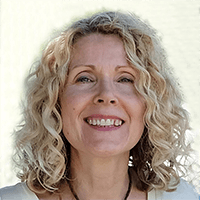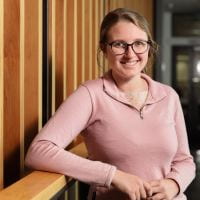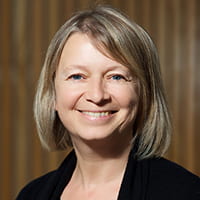Tena Kotou Katou,
The Centre for Cancer Research (CCR) is proud to invite you to the next seminar in their new 2022 Seminar Series, which will be on Friday 29th April at 1pm.
This will be a ‘Show & Tell’ event, in which we will showcase some of the fantastic research programs and scientific platforms that are being developed and led by members of our research community. Each speaker will give a short ‘elevator pitch’ style presentation, followed by a brief Q&A session.
At the end of the seminar (2pm), we will host a 30-minute networking and discussion event over Zoom for those who wish to attend, allowing you to engage with our speakers, ask questions and establish new collaborations. This event is designed to inspire you, to inform you, and to help connect you!
We are so pleased to announce our fantastic line-up of speakers, and are excited to provide a forum in which we can promote and support the incredible research being done by our members. Thank you to all those willing to participate in this event, and we look forward to a session of great learning and discussion.
Ngā mihi maioha,
The Directors of The Centre for Cancer Research
Speakers for this seminar include:

Dr Annette Lansham
Molecular Medicine & Pathology - University of Auckland
Talk Title: Breast Cancer Register analysis – the first full analysis of NZ’s consolidated ~30,000 women breast cancer register.
Abstract:
A unique resource to be able to study breast cancer in Aotearoa is Te Rēhita Mate Ūtaetae. Te Rēhita contains demographic, clinical and pathological information of people diagnosed with breast cancer in Aotearoa from 2000. Currently over 30,000 people with breast cancer have been captured across all DHBs as such, it is a significant resource that can be leveraged across the breast cancer eco-system from traditional audits and epidemiologic public health research to modern genomic and genetic studies to link critical patient information in Te Rēhita to tissue samples. In this talk we will briefly review the major findings of the first comprehensive analysis of Te Rēhita and provide a road-map for our future work integrating genomics with this precious resource.

Dr Nick Knowlton
Molecular Medicine & Pathology - University of Auckland
Presenting alongside Dr Annette Lansham

Tamsin Robb
Molecular Medicine & Pathology - University of Auckland
Abstract: A patient with a lung neuroendocrine tumour and 90 metastases requested and consented to donate cancer tissue for research immediately after death. Understanding the complexities of genomic data from spatially distinct sites is a complex task, requiring novel tools. We developed an Augmented Reality 3D model of this patient’s tumours and representations of linked genomic data, as a tool to better understand tumour evolution. It brings together 3D models across key time-points extracted from CT scans, precise skeletal model segmented from CT scans, 3D location of genomic sampling sites, patterns of genomic data, and programming to enable user-friendly interactions with the data in a “multiplayer” format to enable collaboration. Multidisciplinary model exploration sessions have revealed new insights into the genomic and clinical data; including the presence of pronounced spatial heterogeneity in the primary lung tumour, and the temporal arrival of different genomic clones to single distant anatomical sites. This generous patient donation represents an opportunity to investigate biological drivers of tumour evolution, and enable a new depth of real-time collaboration.

Dr Thiranja Prasad Babarenda Gamage
Auckland Bioengineering Institute
Talk Title: 12 Labours Project: a platform for clinical translation of digital twins for personalising healthcare.
Abstract:The development of novel medical diagnosis and treatment approaches requires understanding how diseases that operate at the molecular scale influence physiological function at the scale of cells, tissues, organs, and organ systems. The Auckland Bioengineering Institute (ABI) led Physiome Project aims to establish an integrative “systems medicine” framework based on personalised computational modelling to link information that is encoded in the genome to organism-wide physiological function and dysfunction in disease. The 12 Labours project aims to extend and apply the developments of the Physiome Project to clinical and home-based healthcare applications. This includes the development of 3 technology platforms. Platform 1 aims to develop a coherent mathematical modelling framework for describing human physiology and provides the building blocks for creating digital twins of the human body. Platform 2 aims to develop technologies for personalising generic digital twins developed in Platform 1 within computational physiology workflows using individual-specific health data. This data will be accessed by integrating the computational physiology workflows with health IT systems and patients in their homes. Platform 3 aims to introduce implantable and wearable device data into the computational physiology workflows to enable continuous monitoring for home-based healthcare.
This talk will describe efforts in the ABI’s Clinical Translational Technologies Group for delivering Platform 2 of the 12 Labours project:
- Developing a clinical translation platform and its associated data management system for integrating computational physiology models with individual-specific data to create personalised digital twins of patients.
- Establishing standard operating procedures for the platform to encourage best practices in data access and stewardship.
- Integrating the platform with health IT systems and home-based healthcare from the cloud

Vicky Fann
Molecular Medicine & Pathology - University of Auckland
Talk Title: MyTardis – a tool to ensure researchers never lose or get confused about genomic data.

Dr Sarah Benge
Cancer Trials New Zealand
Talk Title: Cancer Trials NZ – a range of tools and expertise in clinical trial and data management including the ALEA software for clinical data recording.
Abstract: Clinical trials (interventional studies) are governed by strict requirements centring around adherence to ICH Good Clinical Practice (GCP) which is translated into law in some countries around the world but not yet New Zealand. Nevertheless, researchers still need to follow GCP in order for our trial results and any papers to be considered credible, accurate and of the highest quality, internationally. Cancer Trials NZ ensures GCP is followed in all of its processes which it does mainly through Standard Operating Procedures (SOPs) and by having a GCP compliant data capture software, ALEA. Our Trial Managers manage the trials from start to finish following our SOPs and using EDGE, a clinical research management system to keep track. Our Data Managers build trial specific databases in ALEA to capture the data outlined in the trial protocol with all the checks, logic, validations, monitoring and audit functions built in. The data are entered by research staff at the hospitals around the country where the cancer patients are seen and upon consent, become trial participants. Cancer Trials NZ also manages its non-interventional studies to the same standards to ensure rigor.